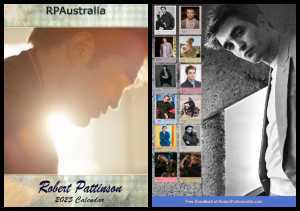NEW PROJECT: Claire Denis Talks Collaborating with Robert Pattinson on Denis Johnson’s #TheStarsatNoon
Robert Pattinson and Claire Denis will collaborate again on The Stars at Noon
Jake Mulligan attended Claire Denis’ post #HighLife Q&A today at the Brattle Theater (thanks to IFF Boston) and shared the following about what projects Claire’s currently working on:
Rob and Claire working together again. Of course I jumped onto Book Depository and ordered a copy because the synopsis was intriguing:
Set in Nicaragua in 1984, The Stars at Noon is a story of passion, fear, and betrayal told in the voice of an American woman whose mission in Central America is as shadowy as her surroundings. Is she a reporter for an American magazine as she sometimes claims, or a contact person for Eyes of Peace? And who is the rough English businessman with whom she becomes involved? As the two foreigners become entangled in increasingly sinister plots, Denis Johnson masterfully dramatizes a powerful vision of spiritual bereavement and corruption.Â
I’m hoping Rob is the “rough English businessman”. Here’s an extract about the character from a 1986 NY Times review:
The English businessman who starts as her john and becomes her lover is another nameless sort, a weak-jawed Brit caricature who passes industrial secrets to rival countries and calls it humanitarianism. ”A humanitarian in Hell,” the narrator thinks. ”This guy, at some point in his earthly existence, must have been truly evil, possibly Hitlerian.” It’s true, he’s in trouble. His company and the Costa Ricans knew of a possible oil deposit under Lake Nicaragua; in the interest of fair play, he gave the information to the Nicaraguans, who apparently told the Costa Ricans they’d been double-crossed. Now the Costa Ricans are after the Englishman, and from there the plot grows as convoluted as Mr. Johnson can make it. The narrator’s assessment of things is what truly matters, though, and with her determined amorality she easily equates industrial espionage and political power plays with the Holocaust.
…
The novel’s epigraph, from a W. S. Merwin poem -”The stars at noon, / While the light worships its blind god” – is an encapsulated version of the relationship between these two nameless characters in their unjust world. And like much of Mr. Johnson’s own poetry (the most recent volume is ”The Incognito Lounge”), this novel is an encapsulated narrative, begging to be fleshed out. Still, it is daring, this political novel that disdains politics, this philosophical work that rejects all philosophies. Coming just a year after ”Fiskadoro,” it suggests that Denis Johnson is one of our most inventive, unpredictable novelists.
A 2007 New York Times review of one of Denis Johnson’s later novels stated this about his works:
… like so many of Mr. Johnson’s earlier novels, about Americans in purgatory, waiting impatiently, even expectantly, for the coming apocalypse.
This has been Mr. Johnson’s preoccupation throughout his career, from early, incantatory books like “Angels†and “Fiskadoro†through later, tendentious works like “Already Dead.†Whether the backdrop is a futuristic United States (“Fiskadoroâ€), Nicaragua in the 1980s (“The Stars at Noonâ€), or, in the case of this latest novel, Vietnam in the 1960s, he has consistently promoted a vision of America as a country in the grip of misplaced dreams and outright delusions, intent on exporting its madness abroad. His cast of characters, too, is similar from book to book: an alarming spectrum of madmen and deadbeats and drifters — the lost, the damned and the dispossessed — all yearning for salvation or release.
Did I say I’m in? It could be some time before we see this film (if at all), but I’m happy to sit patiently and wait. Like we did for High Life and we all saw how that’s paying off.


























